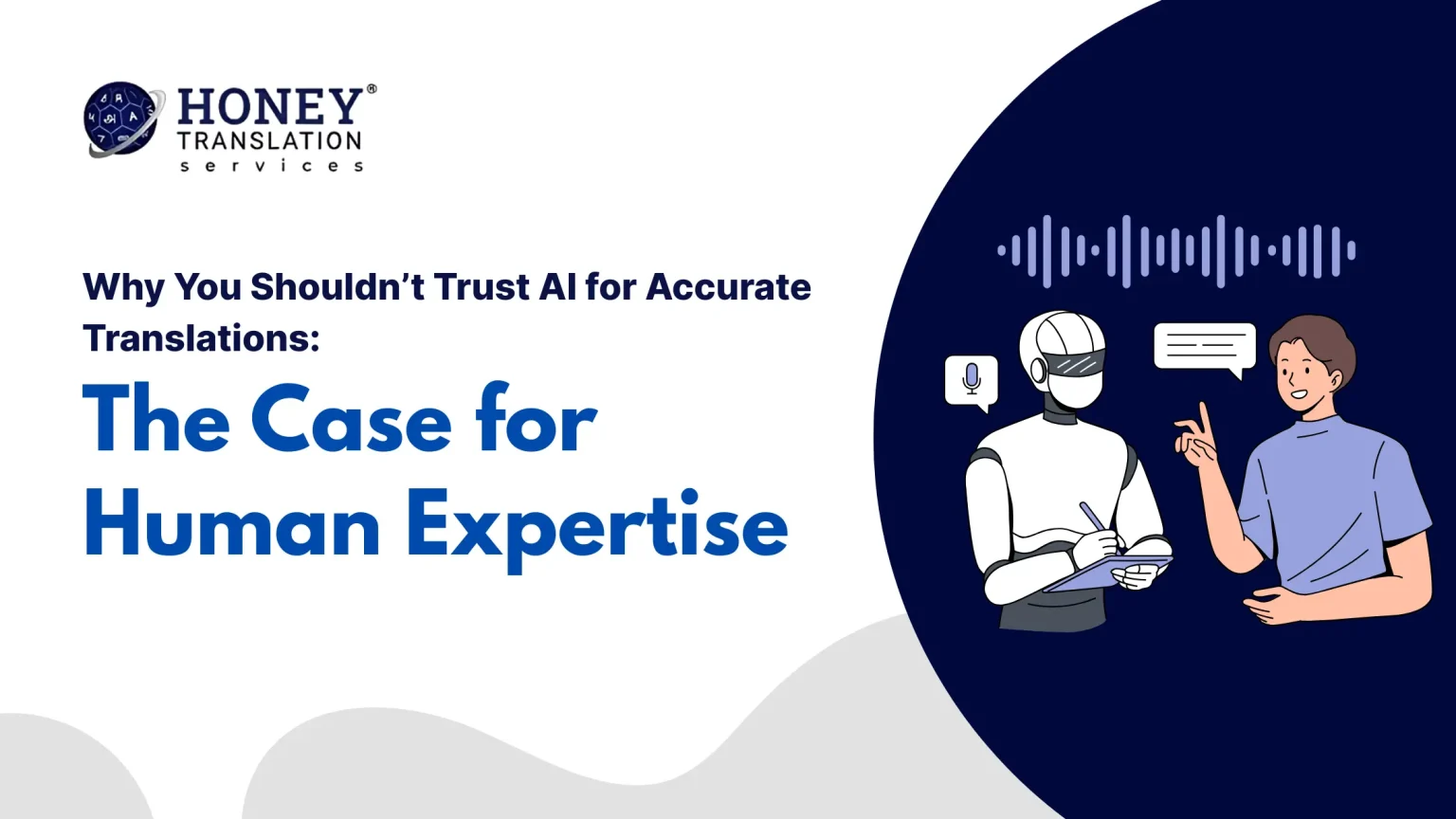 The emergence of artificial intelligence has meant that AI translation tools like Google Translate or DeepL have become increasingly popular. They are quick, free, and accessible 24/7. But when it comes to accuracy, subtlety, and cultural awareness, is AI able to replace humans as translators? Short answer: no.
The emergence of artificial intelligence has meant that AI translation tools like Google Translate or DeepL have become increasingly popular. They are quick, free, and accessible 24/7. But when it comes to accuracy, subtlety, and cultural awareness, is AI able to replace humans as translators? Short answer: no.
While AI has made great strides in language processing, on anything of import, trust AI will lead to expensive errors, miscommunication, or worse, damaged reputations. Here are a few examples of why human skill is still valued.
AI Misses Context and Nuance
AI translation engines translate words through the application of algorithms, databases, and statistical patterns. They may accurately translate a word, but they miss context, mood, or intent. For example, "bank" may mean a financial institution or a bank of a river. A human translator will instantly understand the meaning of the sentence. AI may get it right, however, in idiomatic or conversational language it is likely to be incorrect.
Cultural Sensitivity Cannot Be Automated
We all have experienced that language is tied to our culture. You may have noticed that humor, sarcasm, idioms, and formal/informal tones vary significantly from one region to another. AI is unable to factor in these cultural layers which results in translations that may sound goofy or could be considered offensive. Human translators are familiar with both source and target cultures and can adjust the language while retaining meaning and respect.
Technical and Industry-Specific Translations Require Expertise
It doesn't matter if it is legal contracts, medical records, or engineering or technical manuals, industry-specific documents need precise phrasing. This is because AI tools are sometimes not trained on specialized vocabulary, and even when they are, they may not use the correct terminology based on the context. A certified human translator with knowledge of the subject matter will provide accurate, reliable translations - every time.
AI Translations Provide No Quality Assurance
AI tools don’t review, edit, or proofread their output. You get what you get - mistakes, included. In contrast, with human translation, there are three steps: translation, editing, and quality control. Many agencies also offer peer reviews or checks from a native speaker to deliver the best possible final version. These features are important when accuracy and professionalism matter.
Privacy and Security Concerns
When using free AI tools, your data may be stored or used to train algorithms. This raises concerns when translating sensitive information, such as business agreements, personal records, or legal documents. Human translators, particularly certified translators, follow strict confidentiality protocols and data protection policies.
Final Thoughts
Trust the Humans for What’s Most Important AI translation has its purpose. It can work for casual conversation, travel words and phrases, or if you need the gist of an email. But to communicate accurately, professionally, and culturally appropriately, you can't replace a human.